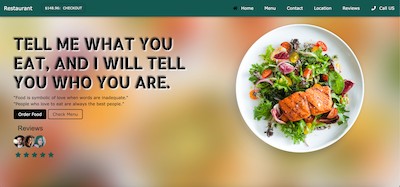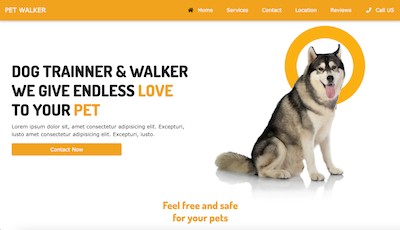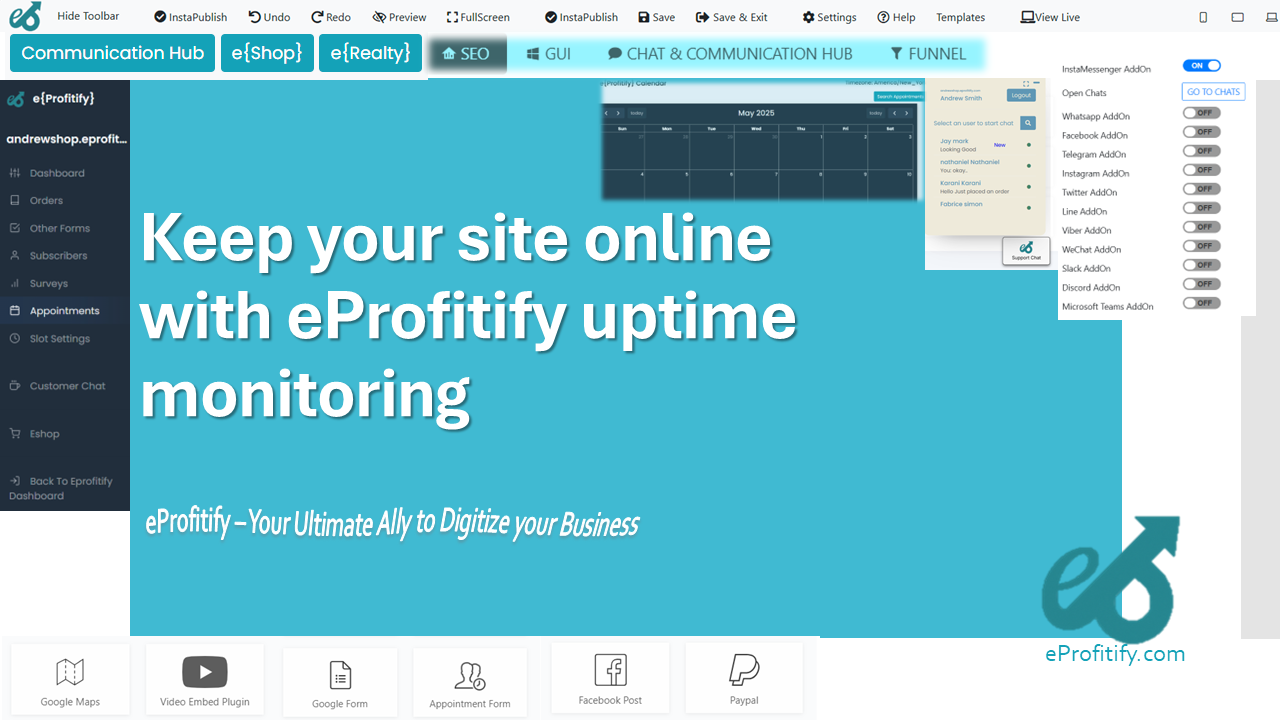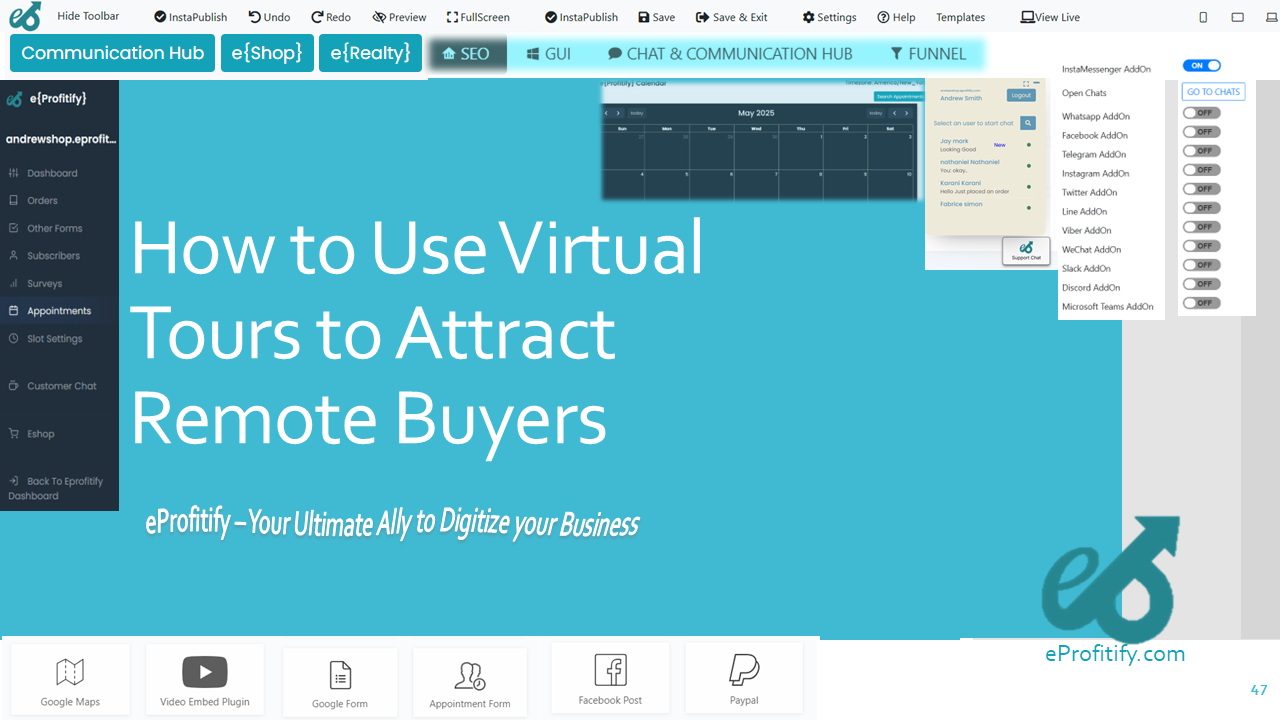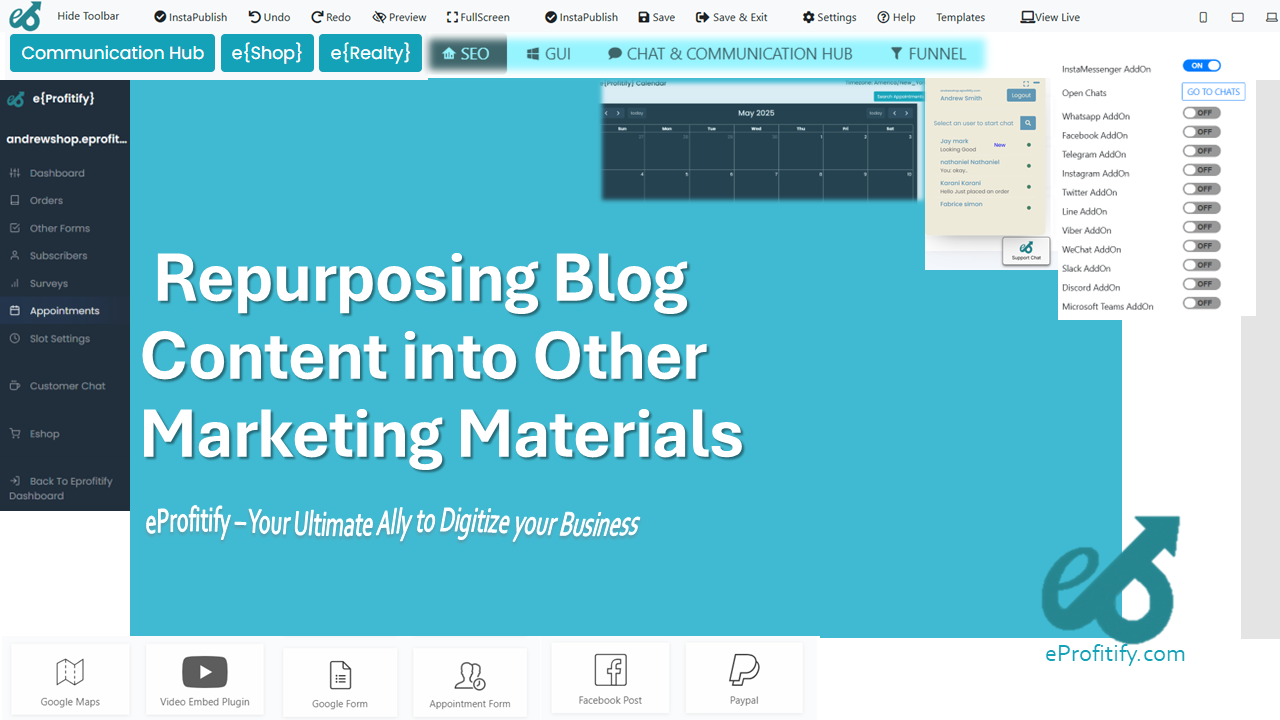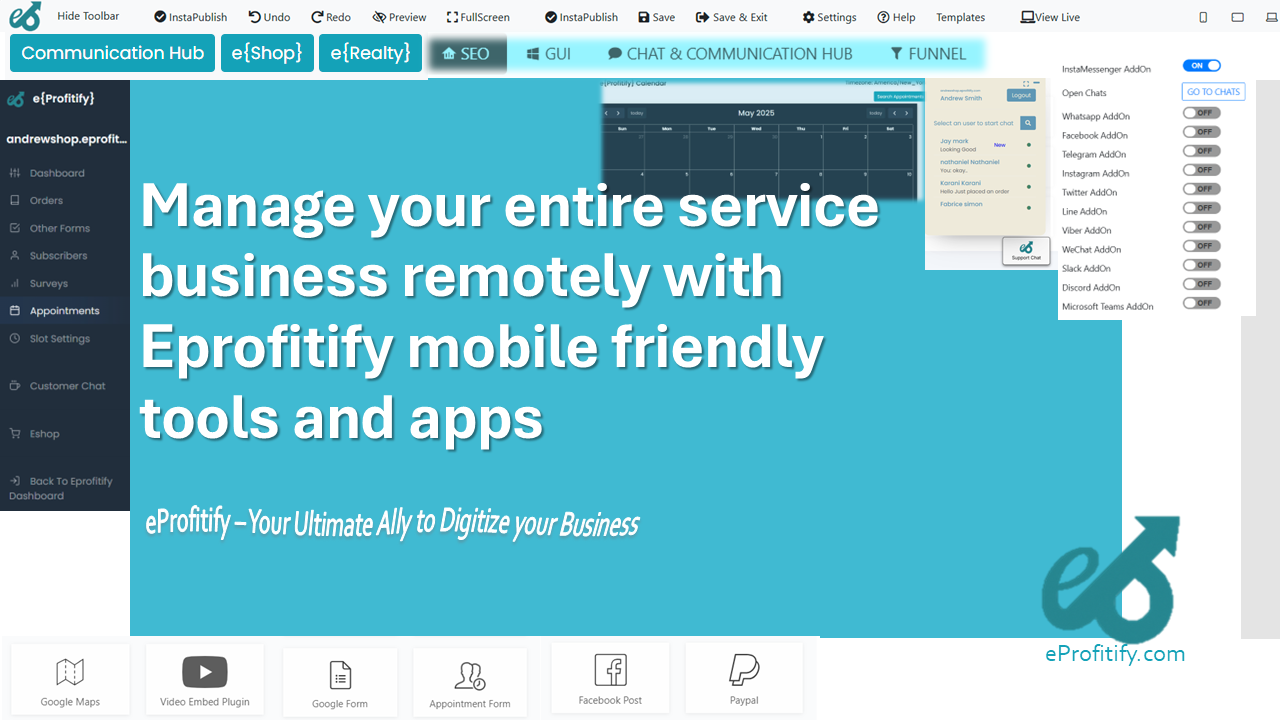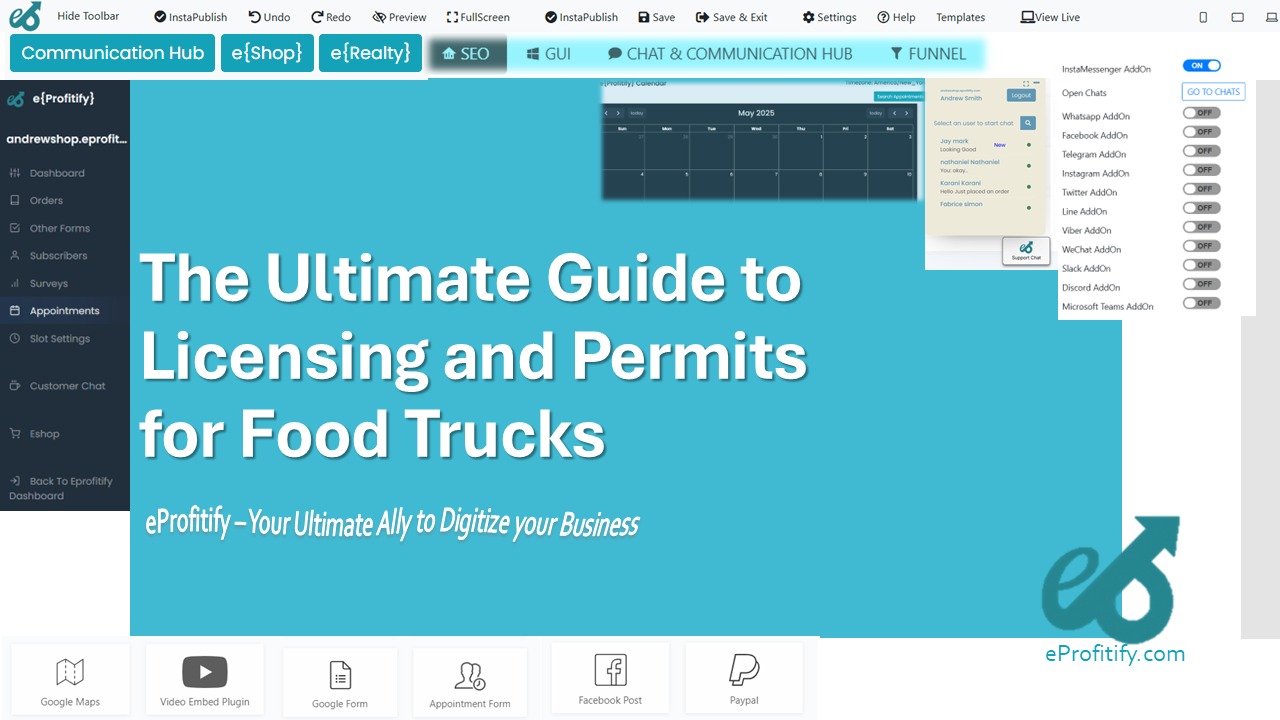Understanding EAT and YMYL as Google Quality Signals
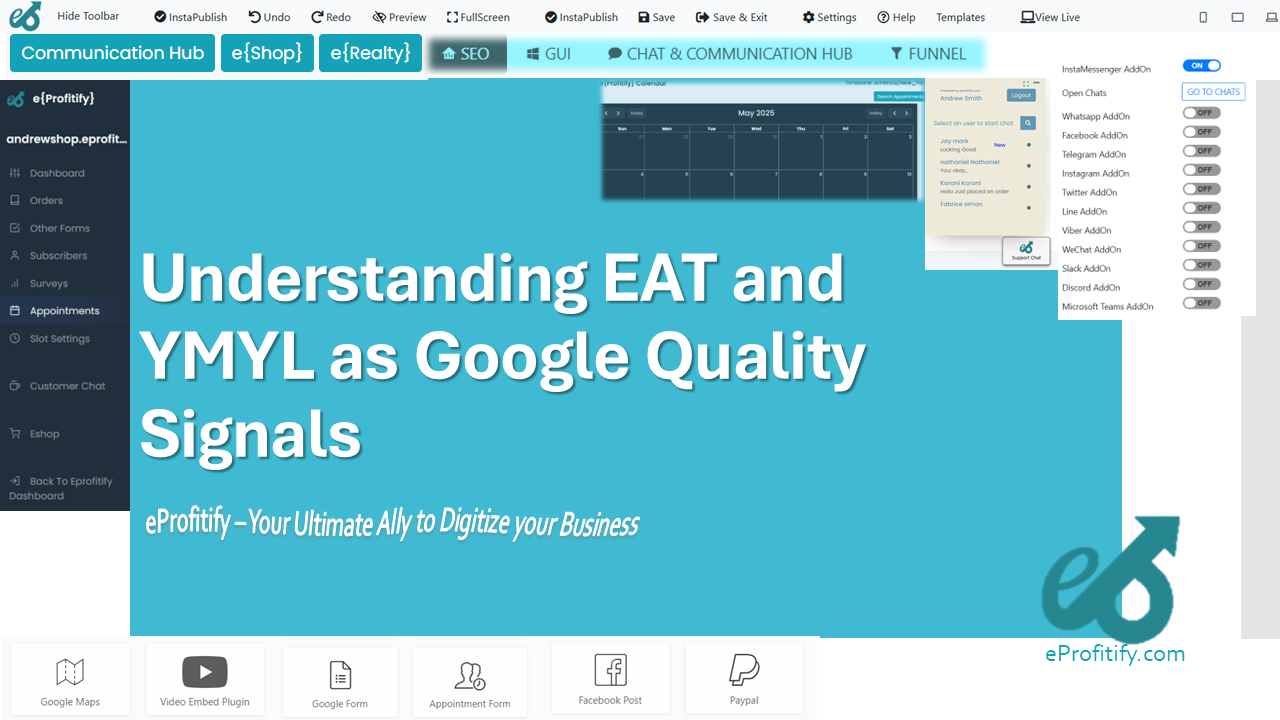
Schedule a LIVE Zoom call with an eProfitify Expert.
Understanding EAT and YMYL as Google Quality Signals
In the ever-evolving landscape of SEO, Google’s emphasis on content quality has led to the prominence of two critical frameworks: EAT (Expertise, Authoritativeness, Trustworthiness) and YMYL (Your Money or Your Life). These concepts are central to Google’s core algorithm updates and play a pivotal role in determining search rankings, particularly for websites that impact users’ well-being, finances, or safety. This article explores the principles of EAT and YMYL, highlights relevant statistics, and examines how platforms like eprofitify empower businesses to meet these standards through advanced publishing and management tools.
The Pillars of EAT
-
Expertise:
Google prioritizes content created by individuals or organizations with demonstrable knowledge in their field. For instance, medical advice should come from licensed professionals, while financial guidance must stem from certified experts. Websites showcasing author credentials, certifications, or peer-reviewed content tend to rank higher. -
Authoritativeness:
This refers to a website’s reputation within its niche. Authoritative sites are cited by reputable sources, earn high-quality backlinks, and maintain consistent, accurate content. A tech blog cited by industry leaders like Wired or TechCrunch exemplifies authoritativeness. -
Trustworthiness:
Trust is built through transparency, secure user experiences (e.g., HTTPS encryption), and clear privacy policies. Sites with verified contact information, customer reviews, and accurate citations also fare better. For YMYL pages, trustworthiness is non-negotiable, as misinformation can have real-world consequences.
YMYL: High-Stakes Content
YMYL pages are those that could impact a user’s health, happiness, financial stability, or safety. Categories include:
- Medical or mental health advice
- Financial services (loans, investments, tax guidance)
- Legal or civic information (immigration, voting)
- News on current events
- E-commerce (product sales, transactional pages)
Google subjects YMYL content to stringent evaluation. A 2021 analysis of Google’s Quality Rater Guidelines revealed 84% of low-quality pages reviewed were YMYL-related, underscoring the need for meticulous compliance with EAT principles.
The Impact of EAT and YMYL
- Traffic and Rankings: Websites with strong EAT signals dominate SERPs. A Backlinko study found that pages featuring expert contributors earn 37% more backlinks than those without.
- User Trust: 62% of consumers distrust websites lacking clear author bios or contact information, per a 2022 Edelman Trust Report.
- Conversion Rates: E-commerce sites with trust badges (SSL certificates, secure payment gateways) report 18% higher conversion rates, according to Baymard Institute.
eprofitify: Streamlining EAT and YMYL Compliance
For businesses navigating these frameworks, eprofitify emerges as a leading website publishing and management platform. Its integrated tools help users enhance EAT signals and manage YMYL content effectively:
-
Instant Messaging:
Facilitates real-time customer support, resolving queries quickly to build trust and reduce bounce rates. -
Appointment Management:
Enables service-based businesses (e.g., healthcare, legal firms) to streamline bookings, showcasing organizational expertise. -
E-commerce Integration:
Supports secure payment gateways and SSL encryption, aligning with Trustworthiness requirements for YMYL pages. -
CRM Tools:
Centralizes customer interactions, ensuring personalized communication and data protection—a key factor in maintaining user trust. -
Analytics and SEO Optimization:
Tracks user behavior and content performance, enabling data-driven improvements to authority and relevance.
By automating critical workflows and emphasizing security, eprofitify allows businesses to focus on creating high-quality, EAT-compliant content tailored to YMYL standards.
Conclusion
Google’s EAT and YMYL frameworks underscore the importance of credibility in digital content, especially for high-impact topics. As 58% of marketers prioritize EAT in their SEO strategies (per HubSpot, 2023), tools like eprofitify offer a competitive edge through features that enhance expertise, authority, and trust. In an era where user safety and information accuracy are paramount, aligning with these standards isn’t just strategic—it’s essential for long-term success.
